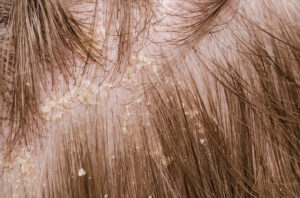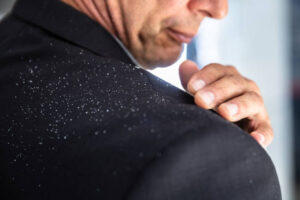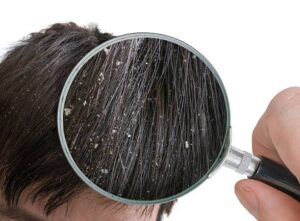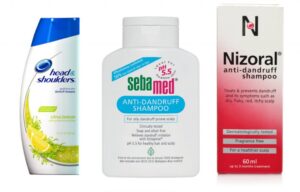When it’s the season of dandruff and scaly scalp, it is often difficult to tell what it actually is, dandruff or just a dry scalp. Well, be it anything, both have similar symptoms and similar difficulties daily. A dry falling scalp is annoying, while dandruff itches can leave your scalp injured. Though the exterior symptoms of both conditions look similar, their causes are entirely different.
A dry scalp is an outcome of dryness in the head. While dandruff is accumulated as a result of excessive oil in the scalp. It leads to the accumulation of skin cells due to excessive oil and thus governs the shedding of the scaly scalp. The treatment for these different conditions is entirely different. Hence, it is imperative to know which one is the culprit of your suffering.
So read on to get a knack of the different causes and symptoms of the two conditions. This article will help you comprehend the condition you might have and treat it with sufficient measures.
Causes and Symptoms:
A dry scalp is a result of a lack of moisture in the scalp. While dandruff is an outcome of excessive oil in the scalp.
Dryness is not limited to just the scalp. It can be extended to other parts of the body. You might as well get dry arms and legs with scaliness.
The following can be the causes of the dry scalp:

- Cold and dry air exposure
- Contact dermatitis is an outcome of a reaction to certain products applied on the scalp like shampoo, hairspray, and styling gel.
- Senescence issues
As a matter of fact, your body regenerates skin cells every now and then, whenever needed. Your body is accustomed to generating new cells and shedding off their, dead ones. This is a normal phenomenon. In the case of dandruff, these dead cells shed off more frequently than usual.
As far as the cause of dandruff is concerned, it is inflicted by seborrheic dermatitis, a condition wherein the skin turns oily and reddish and develops scales. There are white and yellow scales that flake off the scalp in dandruff.

Seborrheic dermatitis is more like a huge term that includes a lot of other symptoms in other parts of the body too. One can get seborrheic dermatitis in the armpits, groin, eyebrows, along the sides of the nose, etc. For infants, the condition is termed as cradle cap.
A fungus called Malassezia is responsible for triggering dandruff. The fungus resided on the scalp, normally causing no trouble. But if the quantity increases, the fungus can cause serious trouble of dandruff and scaly scalp.
Here are common causes of dandruff:

- Age
- Hormone
- Stress
Dirty hair is not the primary cause of dandruff. But not washing hair for a long time can lead the oil to build up on the scalp and cause dandruff.
To differentiate, further, you can look at the flakes of both the conditions and tell. The dandruff flakes are bigger and oily in nature. While the scales or flakes of a dry scalp are rather dry and small.
Treatment:

Treatment of both conditions is imperative before things get out of hand. For treating a dry scalp, you must use products that moisturize the scalp. Applying a moisturizer before bed is a good way to monitor whether the condition is dry scalp or dandruff. On doing so, if it’s is dry scalp, the flakiness will be gone the next morning after the shower. But if it’s dandruff, it will persist.
For mild dandruff, you can start by washing your hair every day with a light shampoo that does not dry out your scalp too much. It should be able to remove oil and thereafter moisturize it with non-oily substances to avoid dryness of hair and scalp later on.
Pyrithione zinc, selenium sulfide, ketoconazole, salicylic acid, coal tar are some chemical substances useful to treat dandruff.
See More:


People don’t know that shampoos that grow your hair faster and longer (obviously without any sulfates, parabens or DEA) even exist. Folks can now enjoy longer hair and achieve more possibilities. Definitely worth checking out.
When you’re assessing alopecia, damaged hair, avoiding hair disorders, fast hair growth, hair care more often than not, very similar rules become relevant.
For the most part, you have to steer clear of hair products and treatments that use chemicals like parabens, DEA or sulfates.
What is healthy for your hair is beneficial for your skin all the same.
It goes without saying the content here is so useful for various reasons. It stays away from the usual traps and errors most fall into: purchasing defective alternatives. Keep up the great content!
Dear Dorothea,
Thank you for the visit to our website. We will soon write a content on the major problems of hair.
Regards,
Grind Your Soul Team